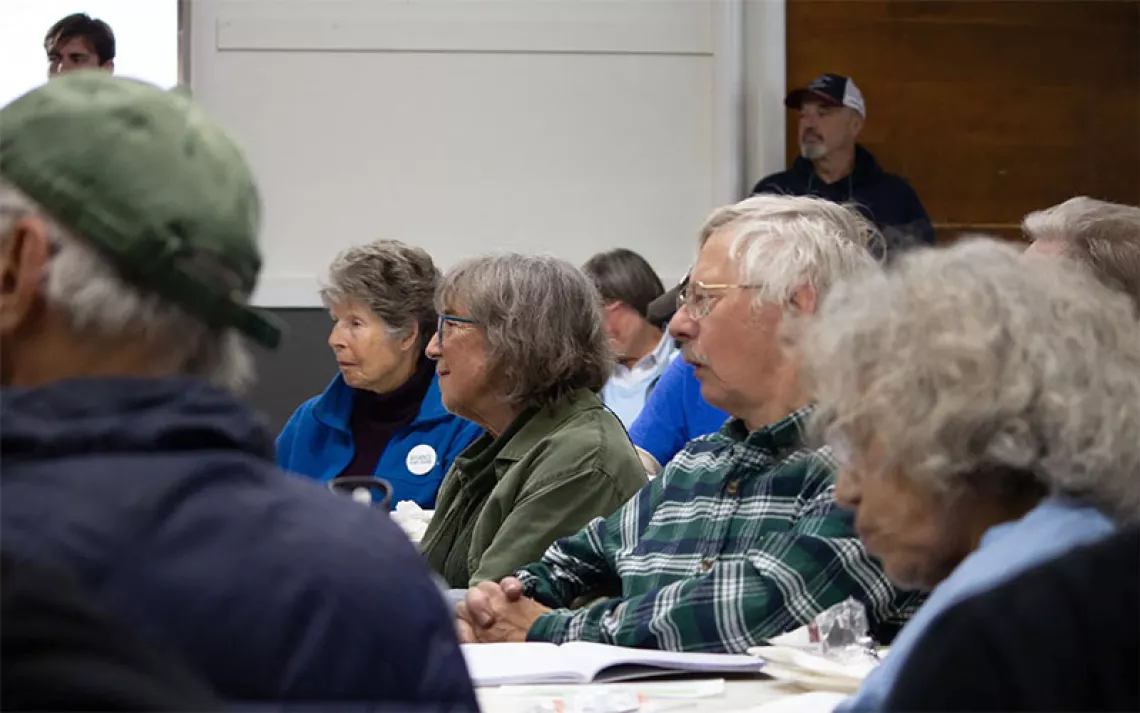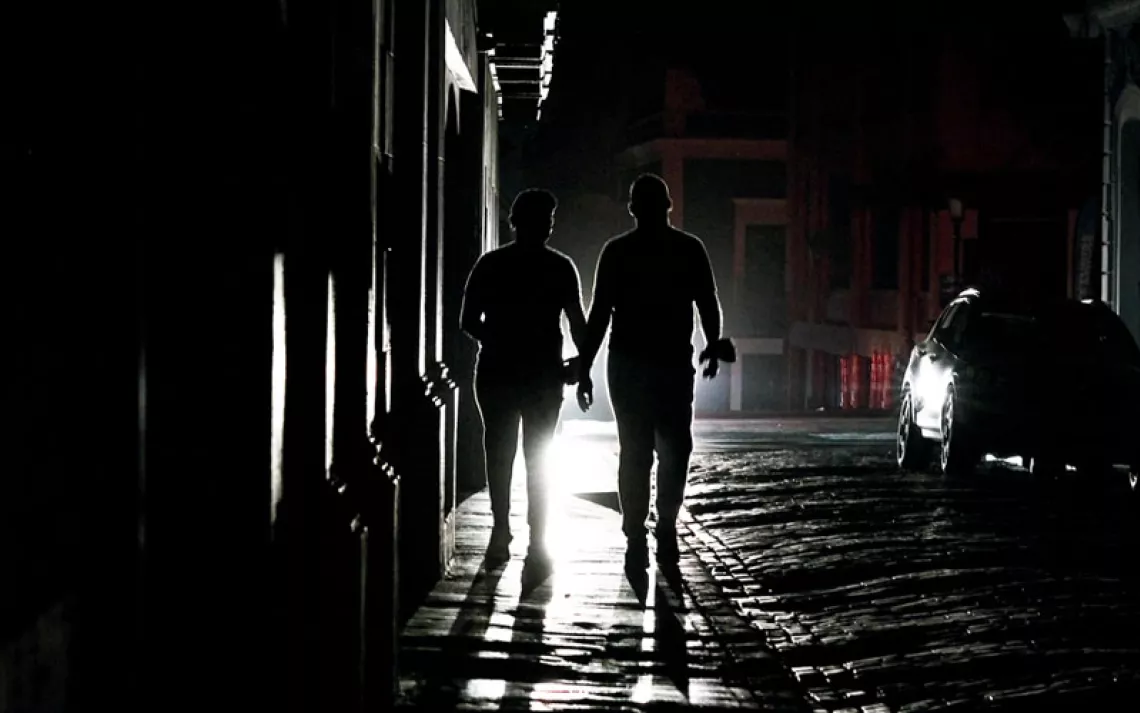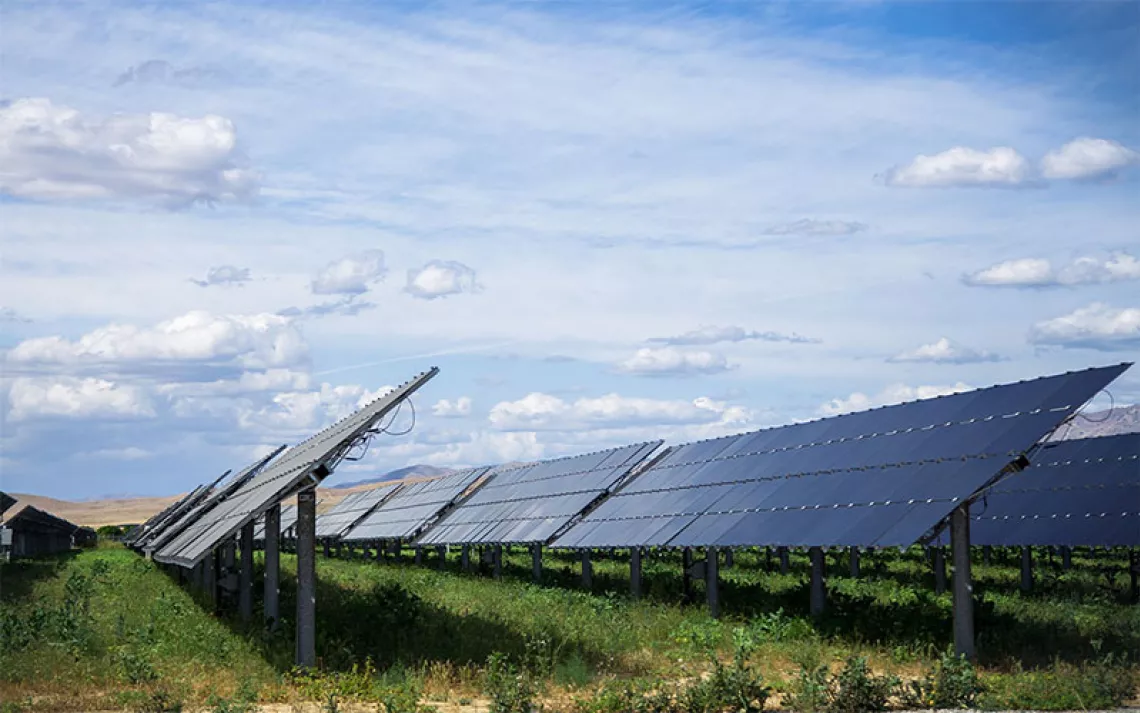U.S. Army Vet Finds a New Life in the Solar Industry
Combat duty in Afghanistan convinced Brandon Russell to make his future in renewable energy

Brandon Russell, U.S. Army veteran and project administrator for SunPower | Photo by Noah Webb
Adapted from an interview with Brandon Russell by Paul Rauber.
I grew up in Indiana. I went to college straight out of high school and burned myself out after a semester, so I decided to join the army. After basic training, I got sent up to Alaska. A year later, I deployed to Afghanistan. I was on a small combat outpost in the middle of the mountains by the Pakistani border—just our platoon of 30 guys out there.
We got everything by airdrop, including fuel. An air force plane would parachute down pallets of four 55-gallon drums. One time we got a fuel drop late at night, about 1 A.M. We all rushed out to the drop zone, but it was a bad drop. The drums landed all over the mountain, and there was no way of retrieving them, so we had to burn them all in place—probably 4,000 gallons of fuel. I was standing there watching the flames light up the mountain and thinking, "Man, this is just ridiculous how much energy we're wasting out here. If my little platoon is wasting this much, how much is our military wasting as a whole?"
I thought about how it would be so much better if we had solar panels instead of these generators. I started doing some research about renewable energy and discovered that solar is probably the most efficient. I decided that when I got out of the army, I'd go into renewable energy, but didn't know what part I'd play in it.
In my last year in the army, I was based at Fort Drum in New York. I had a kid on the way and didn't know what I was going to do when I got out. I didn't have a degree. My only real experience was six years in the army infantry, which set me up for being either a police officer or a security guard. I was stressing out. I thought about reenlisting.
About six months before I got out, I found out that they were starting a Solar Ready Vets class [a project of the U.S. Department of Energy's SunShot Initiative] at the base. The five-week course focused on how the solar industry works and how to install solar panels. At the end of the program we got our certificates, and they lined us up with interviews. I really wanted to work for SunPower, which I felt was one of the leading companies. There's going to be a lot of start-ups, I thought, but when it comes down to the end, there's probably only going to be three big companies, and the rest will go bankrupt or get absorbed. I wanted to get with a company that was going to be in it for the long haul.
I interviewed with two other companies, and they offered me installer jobs. Then SunPower offered me a job as a project administrator doing permitting. I wanted to learn the logistic side more than just standing on a roof and installing, so I accepted the offer, drove across country to California with my family, and started work on June 6, the same date my contract with the army was over.
What I do is deal with cities, getting permits for solar projects. I live in Simi Valley and do permitting for Los Angeles all the way up to Palmdale and Ventura County. The hardest part of the job has been learning the different jurisdictions and the rules and how everything works—every city does things its own way.
The demand for solar is high—north L.A. is one of SunPower's bigger offices. I probably do about 10 projects a week. I really enjoy it. I get a company car, get to do half traveling and half sitting in the office. I probably work eight to 10 hours a day.
In the army, I was a sergeant and had people under me. If somebody messed up, I made them do push-ups. The hardest transition from the military was identifying the chain of command within the civilian sector. Nobody wears rank. You're always thinking, "Is this guy above me? Who do I report to?" Also, the scariest part about being in civilian life is that you could just not have a job tomorrow. They could say, "Don't come back." I'm hoping to stick with this company and move up.
This article appeared in the March/April 2017 edition with the headline "Solar-Ready Vet."
Click here for a video profile of Brandon Russell and Solar Ready Vets.
 The Magazine of The Sierra Club
The Magazine of The Sierra Club



